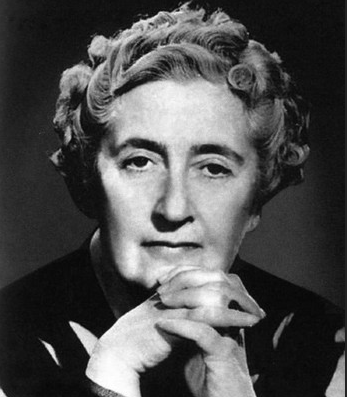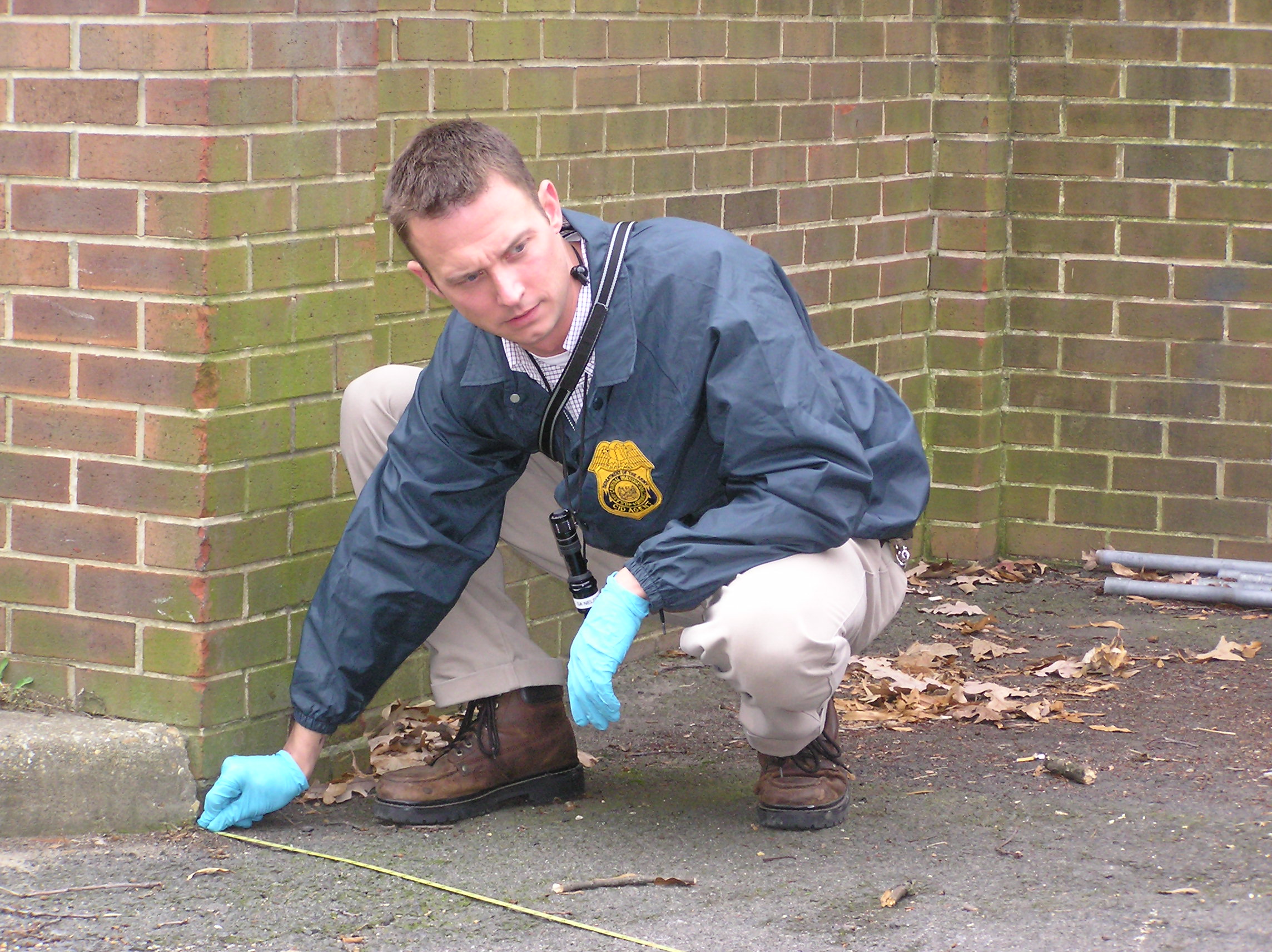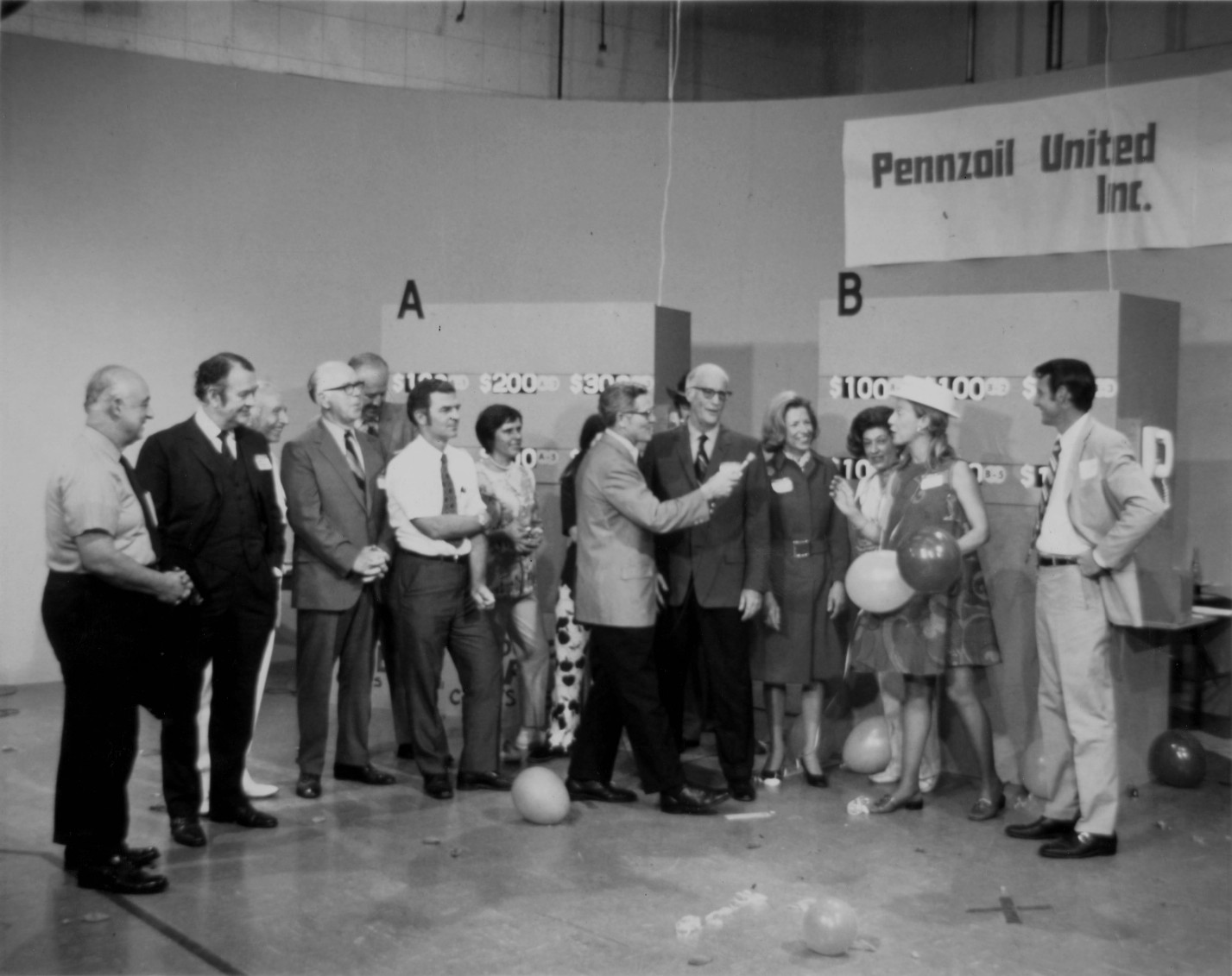|
Cluedo (Australian Game Show)
''Cluedo'' is an Australian whodunnit game show based on the British series of the same name and inspired by the 1949 board game ''Cluedo.'' It was produced by Crawford Action Time (a collaboration of Crawford Productions and Action Time) in conjunction with Nine Network. The show saw a studio audience view a dramatised scenario, then complete rounds of interrogating the six suspects on stage in character and viewing further evidence through a pre-recorded criminal investigation. Players then deduced the solution to the murder case using a trio of computer-linked electronic dials (whodunnit, whatdunnit, and wheredunnit), and after the solution was revealed the first person who had locked-in this combination won a prize. ''Cluedo'' lasted two series from 1992 to 1993 and was presented by Ian McFadyen. It aired on the Nine Network and WIN Television network. No DVD or digital release has been made and only bootleg copies are known to exist, however, televised episodes and scrip ... [...More Info...] [...Related Items...] OR: [Wikipedia] [Google] [Baidu] |
Game Show
A game show is a genre of broadcast viewing entertainment (radio, television, internet, stage or other) where contestants compete for a reward. These programs can either be participatory or demonstrative and are typically directed by a host, sharing the rules of the program as well as commentating and narrating where necessary. The history of game shows dates back to the invention of television as a medium. On most game shows, contestants either have to answer questions or solve puzzles, typically to win either money or prizes. Game shows often reward players with prizes such as cash, trips and goods and services provided by the show's sponsor. History 1930s–1950s Game shows began to appear on radio and television in the late 1930s. The first television game show, ''Spelling Bee'', as well as the first radio game show, '' Information Please'', were both broadcast in 1938; the first major success in the game show genre was '' Dr. I.Q.'', a radio quiz show that began in 193 ... [...More Info...] [...Related Items...] OR: [Wikipedia] [Google] [Baidu] |
Cluedo (French Game Show)
''Cluedo'' is a game show broadcast on France 3, hosted by Christian Morin and by Marie-Ange Nardi, adapted from the British game show itself inspired by the board game ''Cluedo''. It aired for two seasons from 1994-5. The cast consisted of Bernard Menez as Doctor Green (Docteur Olive), Andréa Ferréol as Mrs Peacock (Madame Pervenche), André Pousse as Colonel Mustard (Colonel Moutarde), Marie-Pierre Casey as Mrs White (Madame Leblanc), David Brécourt as Professor Plum (Professeur Violet), and Carole Fantony as Miss Scarlett (Mademoiselle Rose). Production The French version was created by Jean-Jacques Pasquierm and produced by Emmanuelle Tanqurel and Patrice Aroun. Music was by Patrick Lemaitre, and production was Ellipse Programme and France 3. It ran for two seasons (1994-5) and four episodes on France 3. The series was hosted by Christian Morin (October 18, 1994 - November 8, 1994) and Marie-Ange Nardi (August 1, 1995 - August 29, 1995). Episodes are 1:20 hours long. ... [...More Info...] [...Related Items...] OR: [Wikipedia] [Google] [Baidu] |
Waddingtons
Waddingtons was a British manufacturer of card and board games. The company was founded by John Waddington of Leeds, England and the manager, actor and playwright Wilson Barrett, under the name ''Waddingtons Limited''. The name was changed in 1905 to ''John Waddington Limited'', then ''Waddington's House of Games'', then ''Waddington Games'', and finally just ''Waddingtons''. Founding and history The company was established as a printing business, and at first 'practically all its business related to the theatre'. It entered into game production in 1922, due to a boom in demand for playing cards around World War I. Waddingtons subsequently sold both original games (especially tie-ins for UK television programmes) and games licensed from other publishers. Waddingtons became the UK publisher of the US Parker Brothers' Monopoly, while Parker licensed Waddingtons' Cluedo. In 1941, the British Directorate of Military Intelligence section 9 (MI9) had the company create a special edi ... [...More Info...] [...Related Items...] OR: [Wikipedia] [Google] [Baidu] |
Anthony E
Anthony or Antony is a masculine given name, derived from the '' Antonii'', a ''gens'' ( Roman family name) to which Mark Antony (''Marcus Antonius'') belonged. According to Plutarch, the Antonii gens were Heracleidae, being descendants of Anton, a son of Heracles. Anthony is an English name that is in use in many countries. It has been among the top 100 most popular male baby names in the United States since the late 19th century and has been among the top 100 male baby names between 1998 and 2018 in many countries including Canada, Australia, England, Ireland and Scotland. Equivalents include ''Antonio'' in Italian, Spanish, Portuguese and Maltese; ''Αντώνιος'' in Greek; ''António'' or ''Antônio'' in Portuguese; ''Antoni'' in Catalan, Polish, and Slovene; '' Anton'' in Dutch, Galician, German, Icelandic, Romanian, Russian, and Scandinavian languages; ''Antoine'' in French; '' Antal'' in Hungarian; and ''Antun'' or ''Ante'' in Croatian. The usual abbreviated f ... [...More Info...] [...Related Items...] OR: [Wikipedia] [Google] [Baidu] |
Cluedo (franchise)
''Cluedo'', known as ''Clue'' in North America, is a murder mystery-themed multimedia franchise started in 1949 with the manufacture of the Cluedo board game. The franchise has since expanded to film, television game shows, book series, computer games, board game spinoffs, a comic, a play, a musical, jigsaws, card games, and other media. Board game spin-offs Waddingtons, Parker Brothers, and Hasbro have created many spin-off versions of the game, consisting of alternative rules varying from the original Classic Detective Game. (Such spin-offs are distinct from themed "variants" using the basic rules and game configuration, effectively new skins on the original board game.) In addition to revising the rules of gameplay, many of the spin-off games also introduce new characters, locations, weapons, and/or alternative objectives. * ''Clue VCR Mystery Game'' (1985) released as ''Cluedo: The Great Video Detective Game'' in the UK and Australia. Rather than the standard table-top board, ... [...More Info...] [...Related Items...] OR: [Wikipedia] [Google] [Baidu] |
Australian Film Institute
The Australian Film Institute (AFI) was founded in 1958 as a non-profit organisation devoted to developing an active film culture in Australia and fostering engagement between the general public and the Australian film industry. It is responsible for producing Australia's premier annual film and television awards, the AACTA Awards (previously the AFI Awards)."The Australian Film Institute – Celebrating 50 Years of Pride and Passion" Overview The work of the institute is supported by government funding, corporate sponsors and approximately 10,000 members nationally. As Australia's foremost motion picture industry association, AFI promotes the Australian film and television industry and plays a cen ...[...More Info...] [...Related Items...] OR: [Wikipedia] [Google] [Baidu] |
National Film And Sound Archive
The National Film and Sound Archive of Australia (NFSA), known as ScreenSound Australia from 1999 to 2004, is Australia's audiovisual archive, responsible for developing, preserving, maintaining, promoting and providing access to a national collection of film, television, sound, radio, video games, new media, and related documents and artefacts. The collection ranges from works created in the late nineteenth century when the recorded sound and film industries were in their infancy, to those made in the present day. The NFSA collection first started as the National Historical Film and Speaking Record Library (within the then Commonwealth National Library) in 1935, becoming an independent cultural organisation in 1984. On 3 October, Prime Minister Bob Hawke officially opened the NFSA's headquarters in Canberra. History of the organisation The work of the Archive can be officially dated to the establishment of the National Historical Film and Speaking Record Library (part of ... [...More Info...] [...Related Items...] OR: [Wikipedia] [Google] [Baidu] |
Criminal Investigation
Criminal investigation is an applied science that involves the study of facts that are then used to inform criminal trials. A complete criminal investigation can include searching, interviews, interrogations, evidence collection and preservation, and various methods of investigation. Modern-day criminal investigations commonly employ many modern scientific techniques known collectively as forensic science. Criminal investigation is an ancient science that may have roots as far back as c. 1700 BCE in the writings of the Code of Hammurabi. In the code, it is suggested that both the accuser and the accused had the right to present evidence they collected. In the modern era, criminal investigations are most often done by government police forces. Private investigators are also commonly hired to complete or assist in criminal investigations. An early recorded professional criminal investigator was the English constable. Around 1250 CE, it was recorded that the constable was t ... [...More Info...] [...Related Items...] OR: [Wikipedia] [Google] [Baidu] |
Crawford Productions
Crawford Productions is an Australian media production company, focused on radio and television production. Founded in Melbourne by Hector Crawford and his sister, actress and voice artist Dorothy Crawford, the company, also known as Crawfords Australia, is now a subsidiary of the WIN Corporation. Founding and early years Founded exclusively as a radio production company in 1945, Crawford Productions then specialized in drama, light entertainment, and educational programs. When broadcast television was introduced to Australia in 1956, Crawford Productions was one of the few Australian radio production houses to successfully transition to the new medium. Early Crawford TV productions included '' Wedding Day'' (HSV-7, 1956), the first Australian-produced sitcom '' Take That!'' (HSV-7, 1957–59), ''The Peters Club'' (GTV-9, 1958), '' Raising a Husband'' (GTV-9, 1958) and the drama play ''Seagulls Over Sorrento'' (HSV-7, 1960). They also produced segments of the ''Export Acti ... [...More Info...] [...Related Items...] OR: [Wikipedia] [Google] [Baidu] |
Cluedo (British Game Show)
''Cluedo'' is a British game show based on the board game of the same name. Each week, a reenactment of the murder at the stately home Arlington Grange of a visiting guest was played and, through a combination of interrogating the suspects (of whom only the murderer could lie) and deduction, celebrity guests had to discover who committed the murder, which of six weapons (not usually the original six from the board game) and in which room it was committed, whilst viewers were invited to play along at home. Production The TV show essentially followed in the footsteps of an earlier detective fiction program named '' Whodunnit?'', where audience members had to guess the identity of the culprit after viewing prerecorded footage and interrogating suspects. ''The Doctors Who's Who'' describes ''Whodunnit?'' as a celebrity quiz show "not unlike Cluedo...where the panel would see some visual clues and a piece of film and decide who killed whom and in what capacity". ''Dalek I Loved You'' ... [...More Info...] [...Related Items...] OR: [Wikipedia] [Google] [Baidu] |
Game Show
A game show is a genre of broadcast viewing entertainment (radio, television, internet, stage or other) where contestants compete for a reward. These programs can either be participatory or demonstrative and are typically directed by a host, sharing the rules of the program as well as commentating and narrating where necessary. The history of game shows dates back to the invention of television as a medium. On most game shows, contestants either have to answer questions or solve puzzles, typically to win either money or prizes. Game shows often reward players with prizes such as cash, trips and goods and services provided by the show's sponsor. History 1930s–1950s Game shows began to appear on radio and television in the late 1930s. The first television game show, ''Spelling Bee'', as well as the first radio game show, '' Information Please'', were both broadcast in 1938; the first major success in the game show genre was '' Dr. I.Q.'', a radio quiz show that began in 193 ... [...More Info...] [...Related Items...] OR: [Wikipedia] [Google] [Baidu] |
Whodunit
A ''whodunit'' or ''whodunnit'' (a colloquial elision of "Who asdone it?") is a complex plot-driven variety of detective fiction in which the puzzle regarding who committed the crime is the main focus. The reader or viewer is provided with the clues to the case, from which the identity of the perpetrator may be deduced before the story provides the revelation itself at its climax. The investigation is usually conducted by an eccentric, amateur, or semi-professional detective. Concept A whodunit follows the paradigm of the classical detective story in the sense that it presents crime as a puzzle to be solved through a chain of questions that the detective poses. In a whodunit, however, the audience is given the opportunity to engage in the same process of deduction as the protagonist throughout the investigation of a crime. This engages the readers so that they strive to compete with or outguess the expert investigator. A defining feature of the whodunit narrative is the so-ca ... [...More Info...] [...Related Items...] OR: [Wikipedia] [Google] [Baidu] |





